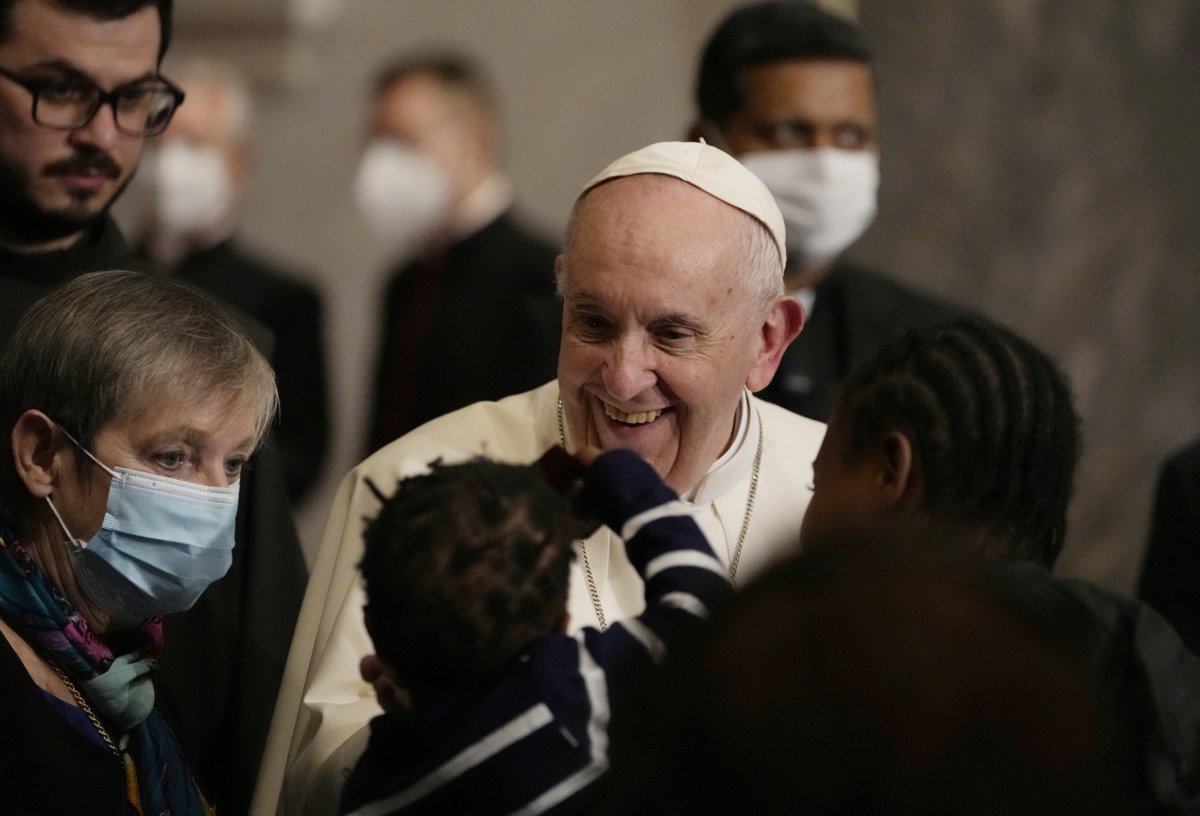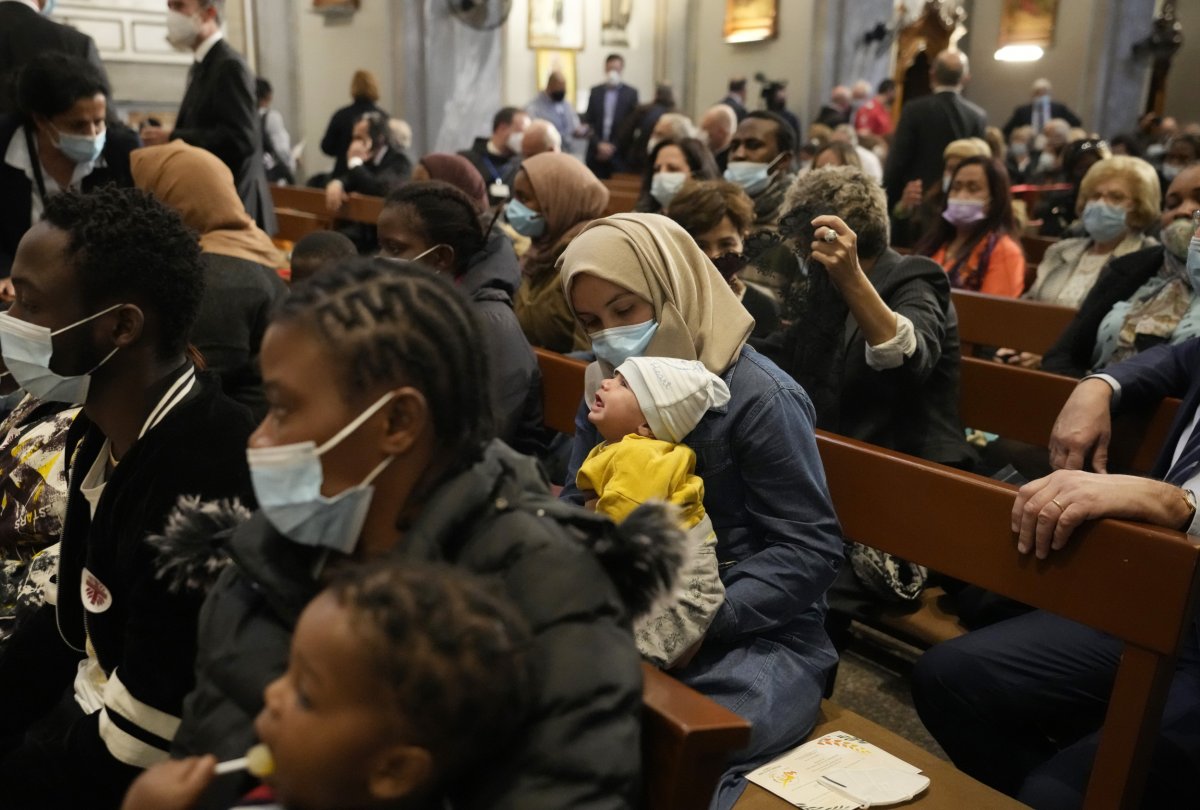During a trip to Cyprus, Pope Francis denounced Western countries' refusal to accept migrants, with the Vatican verifying they would take at least a dozen to Italy as a show of support to Cyprus, a country overwhelmed by asylum-seekers.
The Associated Press reported the Pope led evening prayer with migrants at the Church of the Holy Cross in Nicosia, the Cypriot capital. He said that countries that can take on more migrants fleeing war and hatred "cannot be silent and look away at this culture of indifference."
However, he also acknowledged that there are limits. According to the AP, Cyprus is processing more asylum claims per capita than any other EU nation. In the past ten months, the small island nation has already seen a 38 percent increase from last year in migrant and refugee arrivals.
"This is a generous island, but it can't do everything because the number of people who arrive is superior to the possibility to insert, integrate and promote them (in Cypriot society)," he said.
In a statement, the Vatican said it made arrangements to bring about 12 refugees from Cyprus to Italy. Cyprus' interior minister, Nicos Nouris, told the AP arrangements had been made to transfer 50 asylum-seekers. The Vatican has not yet commented on this discrepancy.
For more reporting from the Associated Press, see below.

Presumably more asylum-seekers could be relocated at a later date since the Rome-based Sant'Egidio Community for years has run "humanitarian corridor" services to bring migrants to Italy legally.
Francis himself didn't confirm the initiative during the Friday evening prayer service. But he made it clear that countries had a moral obligation to accept those who flee war, hatred and oppression—often to face barbed wire at borders before they are rejected and returned.
"He who comes asking for freedom, bread, help, fraternity and joy, who is fleeing hatred, finds himself in front of a hatred which is called barbed wire," Francis told the migrants, who took up most of the pews in the Nicosia church.
He also voiced disgust at how the "developed civilizations of the West" refuse to accept migrants or send them back to countries where they would be "confined, tortured and enslaved."
It was a reference to the migrant crisis at the European Union's border in Poland with Belarus, as well as the conditions in Libyan compounds for refugees who are sent back. Francis called them "lagers" similar to Nazi and Stalin-era detention camps.
"Today, we wonder how that happened (in the past), but this is happening to our brothers and sisters today, on nearby coasts," he said.
Others, he said, never make it and die at sea.
The global indifference, he said, is "a serious illness and there's no antibiotic for it. We have to go against this vice of getting used to these tragedies."
Among those attending Francis' service was David Henry Jr., 28, who is from Nigeria.
"If I could see him now, I'd just ask him to pray for me and to help because now I don't have anything," Henry said. "I'm starting my life over again."
Around 80 percent of all asylum-seekers in Cyprus first arrive in the breakaway Turkish Cypriot north and then cross the ethnically divided island's porous U.N. buffer zone to seek asylum in the internationally recognized south, which is a member of the EU. The Cypriot government claims that Turkey systematically sends asylum-seekers to the north so that they then pressure the island's southern government.
Cyprus was split in 1974 when Turkey invaded following a coup by supporters of union with Greece. Only Turkey recognizes the Turkish Cypriot declaration of independence in the north.
In a statement, the Vatican said it would help Cyprus out "as a sign of the Holy Father's concern for families and migrant people." It said Francis' Cyprus trip "will be accompanied in the coming weeks by a humanitarian gesture of welcoming about 12 refugees, some of whom the pope greeted this evening at the end of the ecumenical prayer meeting with migrants."
Francis is expected to echo the call for migrant welcome when he returns Sunday to Lesbos, Greece to visit a new refugee camp.
Cyprus' interior ministry said two Cameroonian migrants, who have been stuck in the U.N. buffer zone—known as the Green Line—for six months, would be among the 50 who would be relocated thanks to the intervention of the pope.
"The Vatican's symbolic gesture comes as recognition of the difficulties that Cyprus faces with the continuously increasing influx of migrants who irregularly cross the Green Line toward the free areas, arriving through the occupied areas from Turkey, which systematically instrumentalizes the migration issue against Cyprus," an Interior Ministry statement said.

Uncommon Knowledge
Newsweek is committed to challenging conventional wisdom and finding connections in the search for common ground.
Newsweek is committed to challenging conventional wisdom and finding connections in the search for common ground.
About the writer
To read how Newsweek uses AI as a newsroom tool, Click here.








